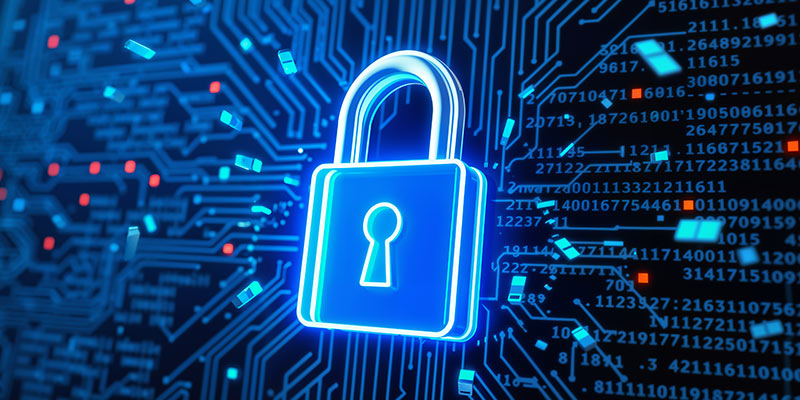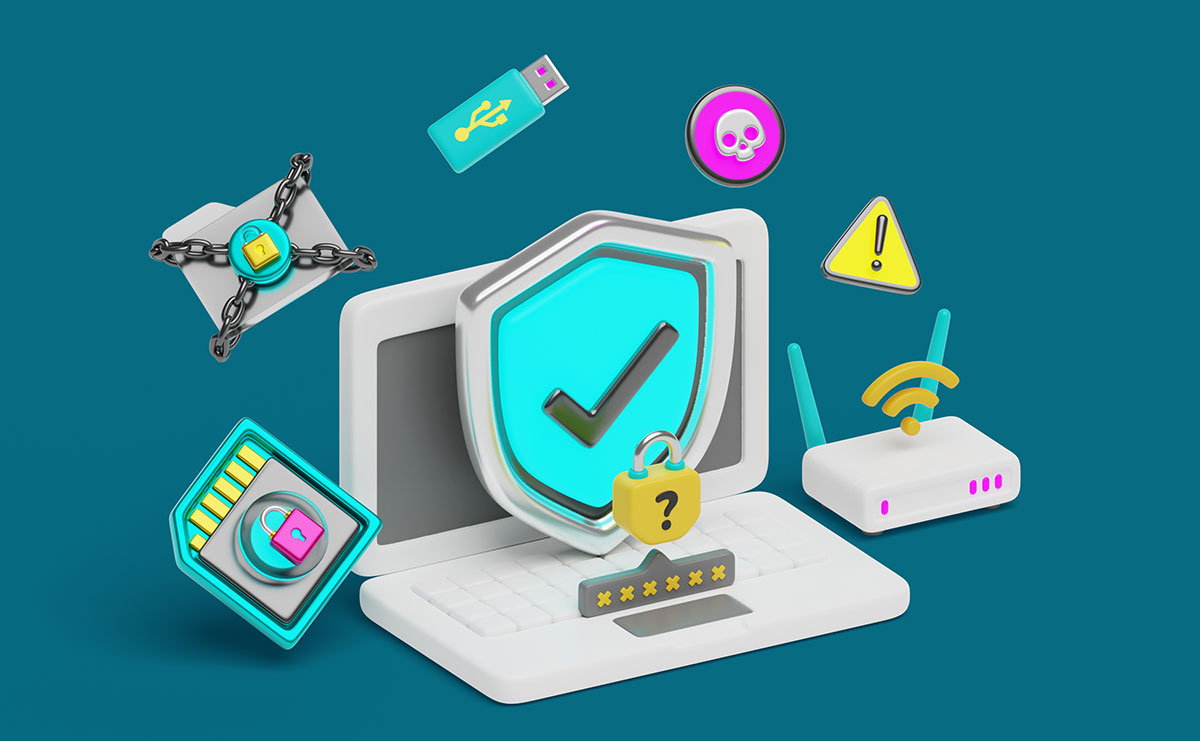Contents
Essential Cybersecurity for Law Firms: Stop Fraud Now
Law firms deal with confidential client information and therefore are an attractive target for cyber-attacks. Good law firm cybersecurity is essential to avoid data breaches, financial fraud, and reputational harm. Lawyers owe a professional duty to protect client information, and this makes the necessity of cybersecurity for law firm measures like encryption, multi-factor authentication, and access controls even more important. With cybercriminals continually refining their methods, lawyers’ cybersecurity must be constantly educated, secured proactively, and supported with sophisticated technology. With a whole-organization approach to cybersecurity, law firms can safeguard their clients, meet legal obligations, and minimize exposure to scams and fraud.
Understanding Law Firm Cybersecurity Risks
I. Why Cybersecurity for Law Firms Matters
Law firms store and manage confidential client data, financial records, and legal documents, making them attractive targets for cybercriminals. A single data breach can result in severe economic losses, legal consequences, and reputational harm. Cybersecurity for law firms is about protecting information, maintaining client trust, and fulfilling ethical obligations. Cyberattacks on law firms are increasing, with threats ranging from ransomware to phishing schemes. Implementing strong security measures is essential to prevent unauthorized access and mitigate risks.
II. Common Cyber Threats Facing Attorneys
Law firms face cyber threats that can compromise client data and disrupt operations. Phishing attacks, in which cybercriminals attempt to steal login credentials through deceptive emails, are among the most common. Ransomware infections can encrypt critical files, forcing firms to pay large sums for data recovery. Insider threats, whether intentional or accidental, pose another risk, as employees may unknowingly expose sensitive information. Without a well-structured law firm cybersecurity strategy, attorneys remain vulnerable to these evolving threats.
III. Ethical Responsibility to Protect Client Data
Attorneys have a professional and legal duty to safeguard client confidentiality. Ethical rules, such as those outlined by the American Bar Association, emphasize the importance of implementing reasonable security measures to protect client information. Failure to secure data can lead to regulatory penalties, malpractice claims, and loss of professional credibility. Cybersecurity for lawyers is not just a technical concern; it is a fundamental aspect of legal practice that ensures compliance with ethical standards. By prioritizing cybersecurity, attorneys can uphold their responsibilities while reducing the risk of fraud and cybercrime.

Recognizing Fraud and Scams Targeting Lawyers
I. Phishing and Email Scams
Cybercriminals frequently target law firms through phishing emails designed to steal sensitive information. These emails often come from trusted sources, tricking attorneys or staff into revealing login credentials, financial details, or confidential case data. Phishing attacks can also contain malicious links or attachments that install malware on a firm’s network. Strengthening cybersecurity for law firms requires training employees to recognize fraudulent emails, verifying the authenticity of communications, and implementing email security protocols.
II. Wire Fraud and Financial Scams
Law firms handling financial transactions are prime targets for wire fraud schemes. Attackers often impersonate clients or financial institutions to manipulate attorneys into transferring funds to fraudulent accounts. Business email compromise (BEC) scams are particularly dangerous, as cybercriminals gain access to a firm’s email system and use it to authorize unauthorized transactions. Implementing strict verification procedures and secure payment processing systems is critical for law firm cybersecurity to prevent financial losses.
III. Insider Threats and Employee Risks
Fraud and scams can also originate from within a law firm, whether through negligence or malicious intent. Employees may unknowingly expose sensitive data by using weak passwords, accessing unsecured networks, or falling victim to social engineering tactics. In some cases, disgruntled staff members may deliberately leak or misuse confidential information. A strong cybersecurity for lawyers framework should include access controls, regular security audits, and employee awareness programs to mitigate these risks. Law firms can prevent fraud and enhance overall security by addressing internal vulnerabilities.
Essential Cybersecurity Best Practices for Lawyers
I. Strong Passwords and Multi-Factor Authentication
Weak passwords are a primary entry point for cybercriminals attempting to breach law firm networks. Every system, email account, and client portal should be secured with strong, unique passwords that combine letters, numbers, and symbols. Multi-factor authentication (MFA) adds an extra layer of protection by requiring users to verify their identity through a secondary method, such as a one-time code or biometric scan. Strengthening cybersecurity for law firms begins with enforcing password policies and implementing MFA across all digital platforms.
II. Secure Data Storage and Encryption
Sensitive legal documents and client information must be stored securely to prevent unauthorized access or data loss. Encryption ensures that confidential data remains protected when stored on internal servers and when transmitted electronically. Cloud-based storage solutions with end-to-end encryption provide an added layer of security while enabling attorneys to access files remotely. A comprehensive law firm cybersecurity strategy includes regular backups, restricted access to sensitive files, and adherence to data protection regulations.
III. Safe Internet Browsing and Device Management
Unsecured internet connections and personal devices can expose law firms to cyber threats. Attorneys should avoid accessing client information on public Wi-Fi networks and use virtual private networks (VPNs) to maintain secure connections. Firm-issued devices should be equipped with updated security software, firewalls, and remote-wipe capabilities in case of theft or loss. Implementing clear policies for device management and internet use is critical for cybersecurity for lawyers, ensuring that legal professionals can work safely without putting confidential data at risk.
Building a Law Firm Cybersecurity Policy
I. Establishing Security Protocols
A structured cybersecurity policy ensures all employees follow consistent security practices to protect client information. Law firms should define clear guidelines on data access, password management, secure communication, and device usage. Regularly updating security protocols in response to emerging threats is essential for maintaining cybersecurity for law firms and reducing vulnerabilities. Documenting and enforcing these policies helps prevent security breaches caused by human error or negligence.
II. Defining Access Controls and Permissions
Not all employees require access to all files and systems within a law firm. Implementing role-based access controls (RBAC) limits data exposure by granting access only to those who need it for their work. Attorneys and staff should use secure login credentials, and administrative access should be restricted to authorized personnel. A strong law firm cybersecurity framework includes continuous monitoring of user activity and immediate revocation of access when an employee leaves the firm.
III. Regularly Updating and Enforcing Policies
A cybersecurity policy must be reviewed and updated regularly to address new risks and evolving compliance requirements. Cybercriminals constantly develop new tactics, making outdated security measures ineffective. Conducting routine security audits, updating software, and reinforcing staff training are necessary to maintain cybersecurity for lawyers. By enforcing security policies consistently, law firms can minimize the risk of data breaches and uphold ethical responsibilities to protect client information.
Training Attorneys and Staff on Cybersecurity
I. Identifying Red Flags in Fraud Attempts
Employees are often the first line of defense against cyber threats, making security awareness training essential. Common fraud attempts, such as phishing emails and social engineering tactics, exploit human error to gain unauthorized access to sensitive data. Training staff to recognize suspicious links, requests for login credentials, and urgent financial transfers strengthens cybersecurity for law firms. Regular updates on emerging threats help attorneys and employees stay vigilant against evolving scams.
II. Best Practices for Secure Communication
Law firms must use secure channels for client communication to prevent data interception by cybercriminals. Emails containing confidential information should be encrypted, and attorneys should avoid sharing sensitive details over unsecured messaging platforms. Implementing secure client portals for document exchange enhances law firm cybersecurity by ensuring that legal communications remain protected from unauthorized access. Establishing firm-wide policies for digital correspondence reduces the risk of information leaks.
III. Running Cybersecurity Drills and Simulations
Periodic cybersecurity drills prepare law firm employees to respond effectively to cyber incidents. Simulated phishing attacks, unauthorized access scenarios, and emergency response exercises help identify weaknesses in security protocols. Evaluating employee performance in these drills enables firms to reinforce training where needed. A proactive approach to cybersecurity for lawyers ensures that attorneys and staff can recognize threats and react swiftly to prevent data breaches.
Responding to Cybersecurity Incidents
I. Steps to Take After a Cyber Attack
A well-defined incident response plan is critical for minimizing damage during a cybersecurity breach. Law firms must act quickly to isolate affected systems, assess the extent of the breach, and prevent further unauthorized access. Immediate action, such as resetting compromised credentials and revoking unauthorized access, is essential for maintaining cybersecurity for law firms. Having a dedicated response team ensures a coordinated and efficient recovery process.
II. Notifying Clients and Authorities
If client data is compromised, law firms have a legal and ethical obligation to notify affected parties. Depending on regulatory requirements, firms may need to inform government agencies, bar associations, or data protection authorities. Transparency in communication helps maintain trust while demonstrating compliance with law firm cybersecurity regulations. Providing clients with guidance on mitigating potential risks, such as identity theft, further strengthens professional responsibility.
III. Recovering and Strengthening Security Measures
Following a cybersecurity incident, law firms must thoroughly investigate the root cause and implement corrective actions. Strengthening access controls, updating security software, and reinforcing employee training prevent similar breaches in the future. Cyber incident reports should be reviewed to improve response strategies. A strong commitment to cybersecurity for lawyers ensures that legal professionals remain prepared to handle future security challenges effectively.
Leveraging Technology to Enhance Cybersecurity
I. Secure Case Management Software
Technology is key in protecting legal data, and secure case management software helps law firms safeguard client information. Cloud-based platforms with end-to-end encryption, access controls, and automated backups provide enhanced security. Choosing software that aligns with cybersecurity for law firms’ best practices reduces the risk of unauthorized data exposure. Integrating security features into daily operations ensures compliance with data protection standards.
II. Cloud Security and Remote Work Protection
With the rise of remote work, law firms must implement measures to secure cloud-based data and remote access. Virtual private networks (VPNs), encrypted storage, and secure login protocols protect client information from cyber threats. Establishing firm-wide policies for device security, remote access permissions, and network monitoring strengthens law firm cybersecurity. Ensuring that remote attorneys follow security protocols prevents unauthorized access to sensitive legal documents.
III. AI and Automation for Threat Detection
Artificial intelligence and automation enhance cybersecurity by detecting real-time suspicious activity and potential threats. AI-driven security solutions analyze network behavior, identify anomalies, and block unauthorized access attempts. Automated monitoring tools help law firms respond to possible breaches before they escalate. Implementing AI-based solutions as part of cybersecurity for lawyers enhances overall security by providing continuous threat detection and prevention.
Cybersecurity for Law Firms: Staying Compliant
I. Ethical and Legal Requirements for Lawyers
Law firms must protect client data under ethical rules and legal regulations. Compliance with the American Bar Association’s cybersecurity guidelines and data protection laws ensures that attorneys uphold their professional responsibilities. Implementing policies that align with cybersecurity for law firms’ standards helps prevent ethical violations and potential legal consequences. Failing to comply with these requirements can result in disciplinary action, fines, or loss of professional credibility.
II. Data Protection Laws and Compliance Standards
Attorneys must be aware of cybersecurity laws that apply to their jurisdiction, including the Personal Information Protection and Electronic Documents Act (PIPEDA), the General Data Protection Regulation (GDPR) and the California Consumer Privacy Act (CCPA). These regulations impose strict requirements for data storage, access controls, and breach notification procedures. Firms that handle international clients must ensure compliance with multiple legal frameworks. Establishing policies in line with law firm cybersecurity regulations helps prevent violations and protects client privacy.
III. Cybersecurity Insurance for Law Firms
Cybersecurity insurance provides financial protection during data breaches, ransomware attacks, or fraud-related incidents. Policies typically cover legal expenses, recovery costs, and liability claims from cybersecurity failures. Investing in a comprehensive insurance policy tailored to cybersecurity for lawyers minimizes financial risks associated with cyber threats. Law firms should work with insurers to determine the best coverage for their security needs.
By prioritizing cybersecurity, law firms can protect sensitive client information, maintain ethical compliance, and mitigate the risks of fraud and cybercrime. Implementing strong security measures ensures that legal professionals uphold their duty of confidentiality while adapting to evolving cyber threats.
Safeguarding Law Firms Against Cyber Threats
The increasing sophistication of cyber threats makes cybersecurity for law firms a necessity rather than an option. Attorneys handle highly confidential information, making them prime targets for cybercriminals seeking to exploit weaknesses in security protocols. Strong defenses—such as encryption, multi-factor authentication, and secure communication channels—ensure that sensitive client data remains protected. To mitigate risks, law firms must also adopt proactive strategies, including regular employee training, cybersecurity drills, and strict access controls. Without these measures, legal professionals face financial and reputational damage and potential ethical violations.
A well-structured law firm’s cybersecurity policy and compliance with data protection laws strengthen overall security and uphold attorneys’ ethical obligations. As cybercriminals continue developing advanced attack methods, firms must leverage technology, such as AI-driven threat detection and secure cloud solutions, to stay ahead. Investing in cybersecurity for lawyers protects client trust and ensures business continuity in an increasingly digital legal landscape. By taking a proactive approach to cybersecurity, attorneys can defend against fraud, scams, and cyberattacks while maintaining compliance with legal and ethical standards.
Protect Your Law Firm with Smart Security Solutions
Cyber threats constantly evolve, and law firms must stay ahead to safeguard client data and maintain compliance. RunSensible offers a comprehensive, all-in-one legal practice management solution designed to enhance security while streamlining daily operations. With built-in secure client communication, encrypted document storage, automated workflows, and role-based access controls, RunSensible helps law firms protect sensitive information without compromising efficiency.
Take control of your law firm cybersecurity with a platform that integrates case management, scheduling, billing, and secure document sharing—all in one place. Whether you need secure e-signatures, task automation, or real-time collaboration tools, RunSensible empowers your firm with the latest technology to prevent fraud, enhance security, and improve productivity. Stay compliant, protect your clients, and simplify your practice with RunSensible. Start your free trial today!
FAQs:
1. What are the biggest cybersecurity threats facing law firms?
Law firms are frequently targeted by cyber threats such as phishing attacks, ransomware, insider threats, and business email compromise (BEC) scams. Cybercriminals exploit weak passwords, unsecured email communications, and outdated software to gain access to sensitive client data. Strong security measures, such as multi-factor authentication and data encryption, can help mitigate these risks.
2. How can law firms protect client data from cyberattacks?
Law firms should implement a multi-layered security approach, including encrypted file storage, secure client communication channels, regular software updates, and employee cybersecurity training. Restricting access to sensitive data through role-based permissions and monitoring network activity can prevent unauthorized access.
3. Are law firms required to follow specific cybersecurity regulations?
Law firms must comply with various data protection laws and ethical guidelines, depending on their jurisdiction. Regulations such as the Personal Information Protection and Electronic Documents Act (PIPEDA), the General Data Protection Regulation (GDPR), the California Consumer Privacy Act (CCPA), and the American Bar Association (ABA) cybersecurity guidelines outline security requirements for handling client information. Failure to comply can lead to legal penalties and loss of client trust.
4. What steps should a law firm take after a data breach?
If a data breach occurs, the law firm should immediately isolate affected systems, assess the extent of the breach, and notify impacted clients and relevant authorities as required by law. Strengthening security measures, such as updating passwords, enhancing encryption, and conducting cybersecurity audits, is essential to prevent future breaches. Having an incident response plan can help law firms respond quickly and effectively.
References
Disclaimer: The content provided on this blog is for informational purposes only and does not constitute legal, financial, or professional advice.







